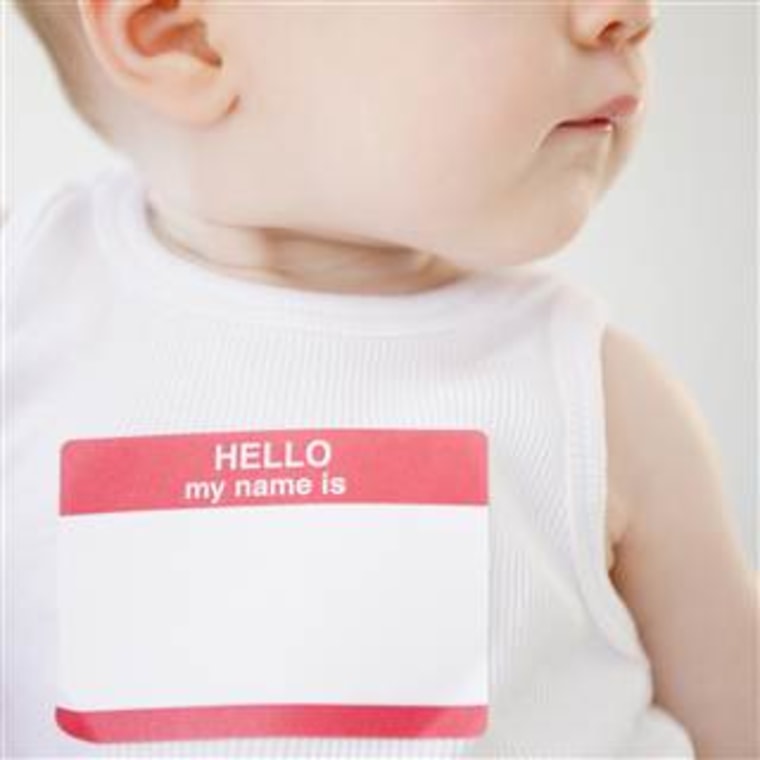It’s only been a day since the Duke and Duchess of Cambridge announced they’re naming their newborn son George Alexander Louis, but critics are already out in force. While some people love that the couple named him after Queen Elizabeth’s father (and bestowing on him the most popular British kingly name in history), others are wrinkling their noses at the choice.
Reaction poured in on the TODAY Moms Facebook page, with comments ranging from “George is great” and “It’s the name of my son” to “They seem like such an unconventional royal couple, a less traditional name seems more fitting.”
For the most part, people believe that all a newborn needs is a lot of love, not a trendy new name.

But the royal couple is not alone in facing criticism for their choice. People often respond with disdain at a child’s name, observers say.
“I think balking or criticizing gives people a way to be part of the story,” writes Pamela Redmond Satran, founder of the online database Nameberry, in an email.
“And maybe it makes people feel a bit superior—‘Will and Kate maybe have infinitely more money and power than I do, but I’ve got better taste in baby names!’”
Naming a child means that someone—a co-worker, sister-in-law, father, or friend—might feel free to share how wrong they think your name choice is.
When Marissa Berube and her partner, Mike Ejdowski, found out they were having a boy due on December 1, they couldn’t wait to share their cool baby name, Archer, with their families.
But she never imagined the backlash. Her sister said outright that she disliked the name and loathed the thought that people might call him Archie. Then, her family asked if there was a backup name choice. When the couple told her it was Roman, Berube’s mother replied: “Well, I like Archer better than Roman.”
“I really wished the family would share our excitement,” Berube, of Hudson, N.H., writes in an email. “I have become hesitant to bring up his name to friends and strangers because I really don’t want to hear more negativity.”
Redmond Satran says it is often the family who feels most free to criticize baby names: “A lot of people say they go on our message boards to talk about names because it’s less hurtful than talking about them with family!” she noted.
She has her own experience with people who disliked her choice in names. When she lived in England, people frequently criticized her daughter Rory’s name by saying it was a boy’s name. Redmond Satran and her husband tried laughing it off, but these comments hurt Rory.
“It’s very rude to tell people you dislike a name,” she says. “It’s more about their insensitivity and bad manners than it is about the name.”
Sometimes people reject baby names because they fear it will make the child the butt of jokes.
Jaele Rollins-McColgan gave her now-4-year-old son the name Fáelán, because she liked that it was a traditional Irish name with the strong meaning of wolf. But in Belfast, where she lives with her husband and two children, a traditional Irish name can seem like a political statement. Yet, her mother worried more that people would make fun of him by calling him “fail” or “felon.” Even though she originally resisted Fáelán, she now defends the name to others.
“I think if you go for an unusual name you have to be prepared for the negative reaction,” Rollins-McColgan writes in an email.
“Most times I get the comment, ‘Oh that’s different!’ which I choose to view as a compliment.”
And she says she replies to unkind responses with humor by saying: “We wanted something more unusual and we love it, besides, we could have called him/her Fruitcake or Pineapple.”